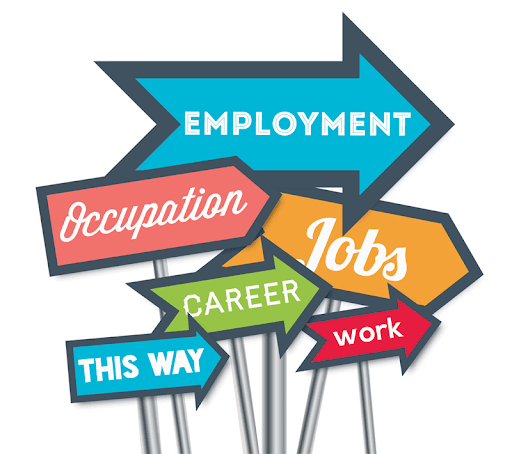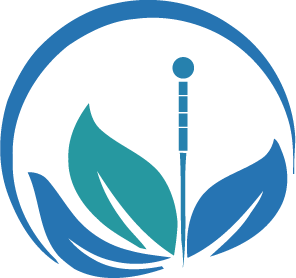Department of Commerce and Consumer Affairs (DCCA) —to verify Hawaii business licenses:
Hawaii Acupuncture Medicine Association (HAMA) periodically receives questions regarding licensing verification and potential misconduct of those practicing Acupuncture Medicine in our state. It is not the role of HAMA to pursue any concerns/complaints within our profession. Below are the resources for individuals to do so:
https://mypvl.dcca.hawaii.gov/public-license-search/
RICO (Regulated Industries Complaints Office) — to submit formal complaints regarding misconduct and/or non-licensure:
https://cca.hawaii.gov/rico/file/
Hawaii Board of Acupuncture
Board of Acupuncture Frequently Asked Questions
Board of Acupuncture Meeting Minutes
ASA American Society of Acupuncturists
HAMA is a member of ASA. Go to the members only page for the ASA member login to access ASA member benefits.
NCCAOM National Certification Commission For Acupuncture and Oriental Medicine
NCCAOM Presentation Slides from 10.18.2020 Annual Meeting
Proposed legislation for the Acupuncture Scope of Practice in Hawaii
Coming soon!
2021 Annual Meeting Questions & Answers
Dr. Joni Kroll, DAc., Chairperson of the Hawaii Board of Acupuncture answers a few questions from HAA about the proposed legislation for acupuncture licensing and continuing education. Here are her answers.
1. if NCCAOM is responsible for the ‘counting of CE’s’ and our colleagues are not diplomates, how will that exactly work?
The NCCAOM is NOT responsible for counting the CE's of Hawaii Licensees. Each Hawaii licensee is responsible for counting their own CE's. (If you happen to be a diplomate, it is easy because NCCAOM does that for you.)
According to the Board of Acupuncture’s Executive Officer, who serves on other Hawaii Boards that require CE's, this is how the process works:
- Upon application to renew your license, the licensee checks a box on the form ATTESTING that they have met the CE requirements.
- The staff at the DCCA does random audits of applications (about 10% of renewals). If you are audited, the DCCA will send you a letter asking you to provide documentation of your CE hours.
- Documentation includes certificates of attendance for things like a webinar, or a signed self statement for activities like legislative work, or a letter from a school if you did a lecture, or a letter from an organization like HAA or AcuPlan if you served on their board, or a copy of a published article. (examples from the NCCAOM are below)
- NCCAOM's role is in analyzing courses/instructors and giving their "seal of approval" that it is a legitimate course taught by a qualified instructor. The certificate of attendance will have a line that states the NCCAOM approved course number on it. The DCCA can look up on the NCCAOM website to confirm that the course number matches an approved course. Yes, it does cost an instructor or organization a fee ($200?? - need to ask Mina this) for the NCCAOM to do its review.
The point of having the NCCAOM do the reviews is that they are an accredited organization with experience and protocols in place for evaluation and less likely to have any special interest compared to smaller state boards that could have conflicts of interest (avoiding favoritism).
2. If one is a diplomate, does one have to do the 30 CE every 2years, or can one just do 60 all at once on the last year of the 4 year cycle ?
Good question, and one I will run by the Deputy Attorney General. I'm pretty sure that Diplomates will only have to confirm/attest to active diplomate status every 2 years. If I'm correct, then it will not matter when you get your total 30/60 hours. The renewal form will need to have two boxes, one for diplomates to check active status and one for non-diplomates to check for 30 CE's. Proof of active diplomate status may not even need to be attached to license renewal form as it is something the DCCA can readily confirm online.
3. How will non-diplomates access the NCCAOM site, to register for a course, or access their database?
Non-diplomates do NOT have to go through the NCCAOM site. You register for whatever courses you want, however you want, and ask the course instructor if they are NCCAOM approved.
However, the NCCAOM website does allow non diplomates to search their approved courses:
NCCAOM has 1,500 PDA Providers and 3,000 approved courses.
4. Will those that aren’t diplomates now, be diplomates through the ‘grandfathering’ in, of their license?
No. This is NOT a route to become a diplomate. No fees to NCCAOM will be paid by non-diplomates. Those licensed in Hawaii prior to these changes are EXEMPT from maintaining Diplomate status but they must attest to 30 hours of CE's (NCCAOM approved) upon license renewal. Those licensed in Hawaii after these changes take effect will be required to maintain diplomate status in order to renew their license.
Hawaii Acupuncture Licenses renew on June 30 of odd numbered years. So I anticipate that the EARLIEST these rules would go into effect is July 1, 2021, which would give licensees a full two years to meet the new requirements.
CE (called Professional Development Activities or PDAs's by NCCAOM) credits can also be earned through Volunteer efforts, as outlined on the NCCAOM PDA handbook (see attached or go here):https://www.nccaom.org/wp-content/uploads/pdf/PDA/NCCOAM%20PDA%20Handbook%207-24-2020%20Address%20Change.pdf
AOM Volunteer Service Opportunities:
- Serve on a Professional Board 10 PDA points maximum (5 per year)
- Advocate Legislation 10 PDA points maximum
- Donate Acupuncture and OM Services 10 PDA points maximum
- NCCAOM Exam Item Writing 10 PDA points maximum
- ACAOM Site Visitor 10 PDA points maximum
- AOM Teaching & Scholarship Opportunities Clinical Supervision 10 PDA points maximum Teach or Lecture 20 PDA points maximum
- Research in Acupuncture & Oriental Medicine 20 PDA points maximum
- Publications Varies AOM Knowledge and Skills Opportunities Course Work 30 PDA points Peer Reviewed Posters or Exhibits 10 PDA points maximum
- Passage of NCCAOM Certification Exam 20 PDA points maximum
- Clinical Experience 10 PDA points maximum
Lastly, these rules will still go through a public hearing process sometime in early Spring.

Mina Larson, CEO of NCCAOM
Mina Larson, CEO of NCCAOM, answers a question from HAA member Koji Kajiwara about Dry Needling.
Question from Koji Kajiwara: What is the NCCAOM stance on Physical Therapists doing what they call Dry Needling?
Answer from Mina Larson:
The NCCAOM is very concerned and proactive in stopping the practice of dry needling by PTs and others with very little education/training. The NCCAOM has published a fact sheet, position statement and Q&A on dry needling that can be accessed through this link: http://www.nccaom.org/wp-content/uploads/pdf/NCCAOM%20Dry%20Needling%20Position%20Statement.pdf
We are also continuously working with state regulatory boards and state associations on providing letters, testimonies and information on education, training and assessments needed to practice dry needling and all forms of acupuncture safely. Public education is also a very important tool to educate consumers on selecting qualified acupuncturists for dry needling and all forms of acupuncture. This is where we have information and data our national certification board to showcase to regulatory boards and the public about the safe and component practice of all forms of acupuncture and are working with national and state associations to share this information. There is definitely room to do more and we would like to partner with HAA and other associations for more opportunities to work together to stop the practice of dry needling by PTs. The APTA and state PT state associations are very well organized and well funded so we have to continuously work together to educate everyone about our qualifications and training as compared to the little that they complete.
Thank you,
Mina
Mina M. Larson, M.S., MBA, CAE
Chief Executive Officer, NCCAOM
Ph/Fax: (202) 381-1115 Direct
Cell: (703) 314-2908
Main Ph: (888) 381-1140 / Fax: (202) 381-1141
Web: www.nccaom.org
Link from Anita Chen Marshall, DAOM, Pharm.D, L.Ac.
Here is the link to the book chapter "Traditional Chinese Medicine and Clinical Pharmacology" authored by Dr. Anita Marshall for your review and reference.
*Note - the final draft of the manuscript didn't make it from the editing team to the publisher before it was printed so there are some mistakes that weren't corrected.
https://link.springer.com/ referenceworkentry/10.1007% 2F978-3-319-56637-5_60-1


